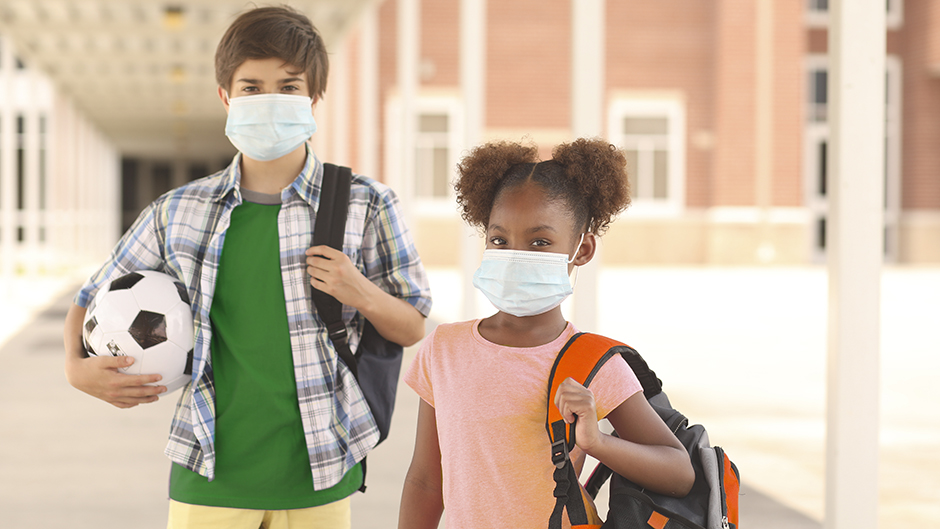The University of Miami has developed protocols to keep everyone safe and healthy while participating in camps this summer. These practices will apply to all University camps, which include gatherings of individuals for the purpose of education or recreation from mid-May through mid-August.
Among the measures outlined by the University, masks must be worn by everyone—campers and staff members—at all times, and participants will not be allowed to stay overnight on campus. Extra masks will be available for counselors and campers, should they lose or damage theirs during the day. Child drop-off and pick-up times will be staggered. Additionally, all camp participants and staff members will be required to be cleared by the daily symptom checker before entering campus.
Explore a number of camps that will be offered this summer on campus or virtually. Note, this list is subject to change and updated regularly.
What can I expect?
Review the following list of frequently asked questions to learn more about the University’s health and safety protocols this summer.
How many participants will be allowed per camp?
Summer camp programs will operate at 50 percent of the normal registration capacity. The number of participants will vary based on the nature of the camp, facility space, and staffing. The groups will be organized into the smallest practical sizes. To the extent possible, the children’s exposure to different counselors and campers will be limited.
What can my child bring with them to camp?
To reduce the introduction of new objects to the camp environment, parents should leave their child’s toys, blankets, and other comfort items at home. Accommodations should be made for children with disabilities or special needs.
At camp, each child will have their own set of materials, when possible. Camp staff members are responsible for sanitizing materials after each use. Shared sports equipment, such as balls and frisbees, will be sanitized daily and before being used by a different group of campers.
What kinds of cleaning and sanitizing practices are in place?
All campers and staff members are required to wear a mask at all times while indoors and outdoors. Hand sanitizer is available throughout the campus and at each facility. Signage has been installed across campus, including in bathrooms, to promote hygiene/hand washing and physical distancing.
Counselors have been trained to follow University COVID-19 protocols and contact tracing procedures. Each camp has a designated professional staff member responsible for coordinating facility sanitization and ensuring their camp groups adhere to University policy.
What happens if my child gets sick while attending camp?
Campers who display COVID-19 symptoms will be isolated, and parents will be contacted to pick up their child immediately. Until they receive negative results from a COVID-19 test, campers displaying symptoms will remain quarantined at home. Parents are responsible for taking their child to get tested.
What happens if someone at camp tests positive for COVID-19?
If a child tests positive, parents must immediately notify the camp director and call 305-243-ONE-U (6638) to notify UTRACE, the University’s contact tracing initiative. UTRACE will identify close contacts associated with the child at the University-sponsored camp. In addition, the camp group will be required to quarantine for seven days because the entire unit will be considered close contacts, regardless of actual interaction or physical distancing between the camper who tested positive and other group members. The children and staff members affiliated with the group can be tested five days post-exposure and must provide proof of a negative PCR test result—or of being fully vaccinated against COVID-19—before returning to camp.
Siblings of campers who have tested positive will be considered close contacts and also will be required to quarantine for seven days. They must follow the aforementioned steps. And they also can be tested five days post-exposure and must provide proof of a negative PCR test result before returning to camp.
If a camper was exposed to COVID-19, the parent must disclose this information and all individuals identified as close contacts must quarantine for seven days. The child will be able to return to camp by showing proof of a negative PCR test result or of being fully vaccinated.
If any person within a camper’s household—such as a parent or sibling—tests positive for COVID-19, the camper will be considered a close contact and must remain home in quarantine for seven days. The child will be able to return to camp by showing proof of a negative PCR test result or of being fully vaccinated.
Interested in hosting a future camp at the University?
To get started, contact the Office of Conference Services and include the following information:
- Name and contact information of camp director
- Expected dates of the program
- A proposed schedule of events including possible campus locations
- Estimated number of participants per session, if hosting more than one session
Parents, camp directors, or anyone who needs additional information may contact the Office of Conference Services at conferences@miami.edu or 305-284-5742.

